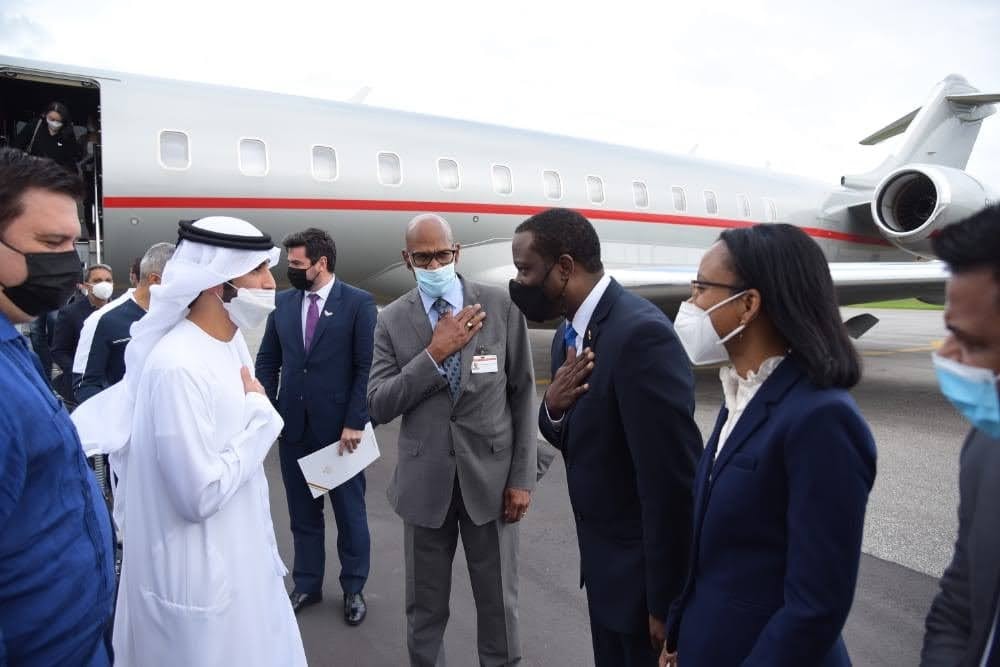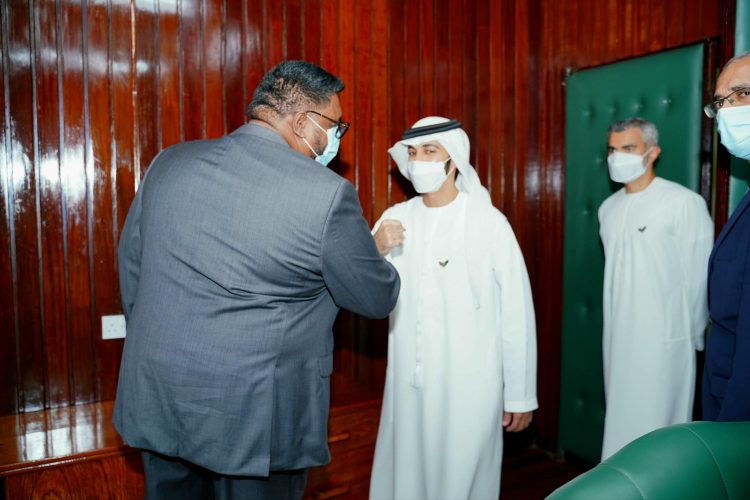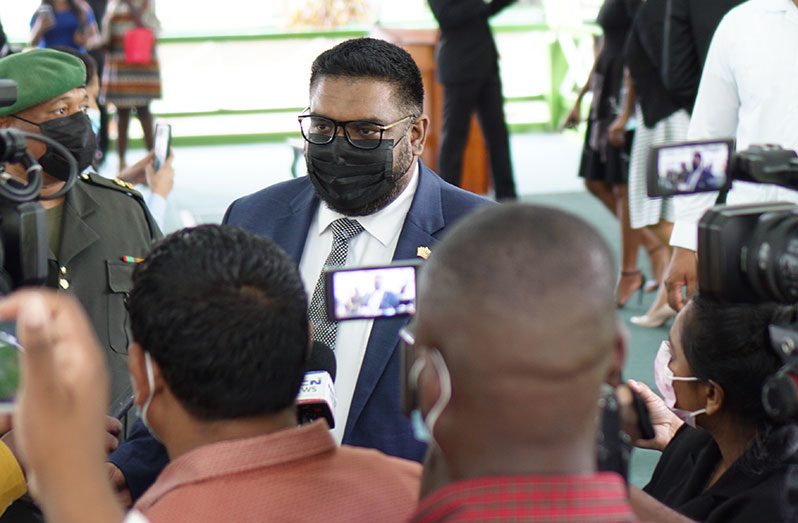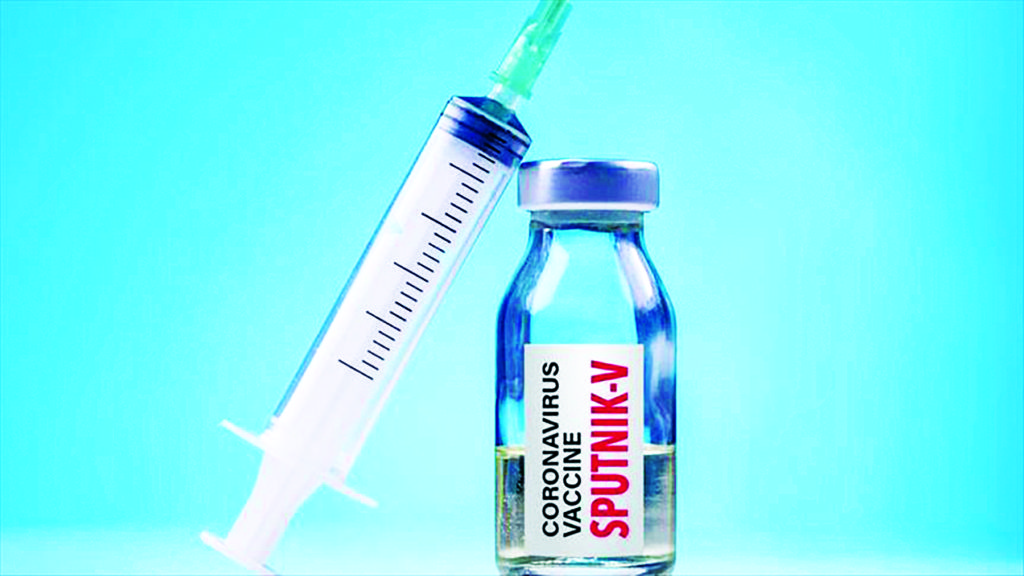UAE delegation on state visit

Sheikh Ahmed Dalmook Juma Al Maktoum of the UAE (second from left) being welcomed to Guyana by Minister of Foreign Affairs Hugh Todd. (CJIA photo)
November 20, 2020
President Irfaan Ali yesterday met with Sheikh Ahmed Dalmook Juma Al Maktoum of the United Arab Emirates (UAE) and an eight-member delegation who arrived in Guyana on a three-day official state visit.
A release from the Office of the President said that over the next few days, the Sheikh, who is a member of the ruling family in the UAE, and members of his team will meet with several Government officials from various ministries.
In the initial meeting with President Ali, the UAE team also met with members of the cabinet including: Minister of Foreign Affairs and International Cooperation, Hugh Todd; Minister of Natural Resources, Vickram Bharrat; Minister of Housing and Water and Minister within the ministry, Collin Croal and Susan Rodrigues; Minister of Agriculture, Zulfikar Mustapha; Minister of Public Works, Juan Edghill and other government officials.

The UAE is one of the top oil producing countries globally and is expected to lend assistance to Guyana in oil and gas, among other areas, the release said.
Al Maktoum is the founder of the diversified conglomerate, Africa, Middle East Resource Investment (AMERI Group).
According to the UAE’s Administration Office’s website Sheikh Ahmed Bin Dalmook Juma Al Maktoum’s office “has a portfolio of privately held group companies that focus mainly on Infrastructure Development, Energy Projects, LNG Terminal Development, Commodity & Oil Trading, Water Desalination, Water Recirculation as well as Education and Agricultural Project.”
“We currently own the largest emergency power plant installed in West Africa. The Private Office is undergoing development of over c. 2000 MW of Power Plants across many countries in Africa, Asia and other jurisdiction in the developing regions. We also deliver integrated and unbundled solutions in supplying LNG. With the help of our partnerships, we carry out the business of the complete supply chain of LNG and supplying natural gas,” it adds.



